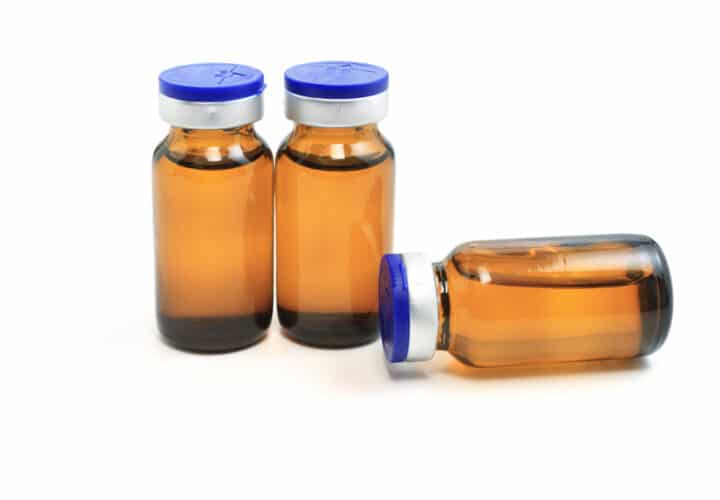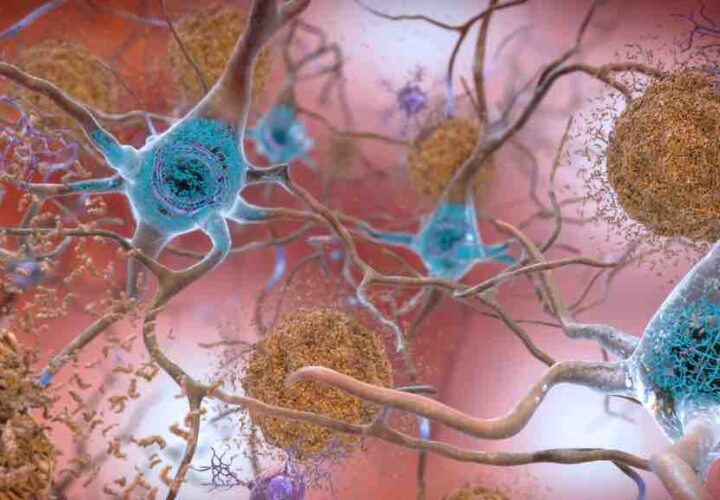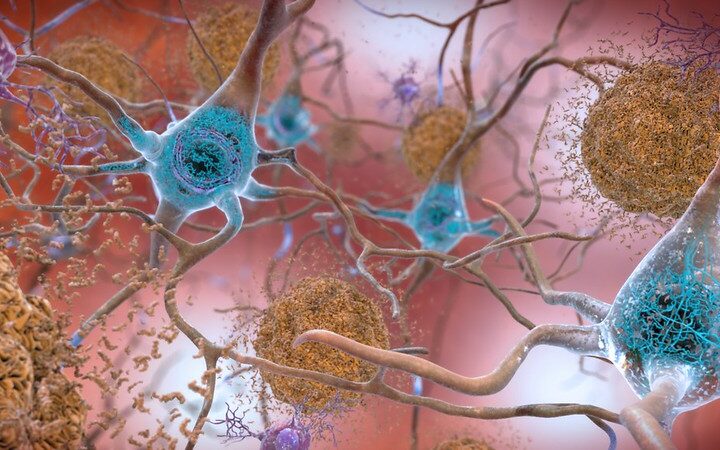In 2022, Vaccine maker Vaxxinity received the FDA's fast-track designation for its candidate Alzheimer's vaccine, UB-311. Now, its Phase 2 trial results are in. But there won’t be a Phase 3 trial until the company finds a strategic partner.
Vaccines are one of the greatest medical advances in history, and now, this strategy is being applied to the treatment and prevention of Alzheimer’s. Currently, there are at least nine different Alzheimer’s vaccines in trials, and one of them has just been fast-tracked by the Food and Drug Administration, which means that while its FDA approval is not guaranteed, its review process will be expedited.
Drugmaker Vaxxinity is developing a new class of immunotherapeutic vaccines, and today the company announced that their vaccine UB-311 — an anti-amyloid immunotherapeutic vaccine being designed for people with Alzheimer’s disease — has been granted Fast Track designation. Despite completing its early Phase 2 trial, the drug company has yet to find a pharmaceutical company to collaborate with on a definitive Phase 3 trial, leaving UB-311 in limbo.
How does Vaxxinity’s Alzheimer’s vaccine work?
UB-311 is an immunotherapeutic vaccine candidate. It targets one of Alzheimer’s main biomarkers: toxic forms of aggregated amyloid protein in the brain. “Our vision is for UB-311 to provide a more convenient, safe and accessible option for patients, caregivers and health systems, while working on the same biological mechanism that has been validated by the monoclonal antibodies,” said Vaxxinity Chief Executive Officer Mei Mei Hu.
Unlike Leqembi, Vaxxinity’s treatment will not require frequent infusions because it teaches the body how to generate monoclonal antibodies on its own.
Is it effective? Here’s what we know
So far, everything we know is based on the data the company has disclosed from its ongoing clinical trials. Its Phase 1, Phase 2a, and Phase 2a Long Term Extension trials were shown it to be well tolerated in people living with mild to moderate Alzheimer’s over three years of repeat dosing of the vaccine.
In summer of 2023, the company published the results of their Phase 2 trial in The Lancet’s eBioMedicine, upholding this finding that UB-311 was safe with few side effects.
In this 18-month-long, Phase 2 trial, the team tested the vaccine on 43 participants who were split into three different groups. The first group received seven injections of the vaccine over that year-and-a-half period, while the second group received five injections of the vaccine and two injections of the placebo. The final group received seven doses of the placebo.
While the clinical trial wasn’t designed to say whether the vaccine slowed the course of the disease, Hu was optimistic about the results. “Our data to date shows an early trend for slowing decline in multiple functional and cognitive tests compared to the placebo group,” she said. “We think this will be clinically meaningful for patients with early Alzheimer’s.”
Is Vaxxinity’s Alzheimer’s vaccine safe?
While trials are still ongoing, and Phase 3 trials will bring more insight, trial data so far show that the vaccine’s safety profile appears to be comparable to placebo. Unlike with anti-amyloid drugs Aduhelm and Leqembi, there have so far been no cases of amyloid-related imaging abnormalities-edema (ARIA-E) in the main study.
What’s next for Alzheimer’s vaccine UB-311?
Next, this experimental Alzheimer’s vaccine would go on to Phase 3 trials. However, the company has been seeking a strategic partner to conduct this next stage since at least November 2022.
When the trial process is complete, the FDA will review all the data and determine whether the vaccine can be approved and made publicly available.
“Our vision is for UB-311 to provide a more convenient, safe and accessible option for patients, caregivers and health systems, while working on the same biological mechanism that has been validated by the monoclonal antibodies,” Hu said.
While the fact that the Phase 3 trials aren’t yet enrolling could be a snag, this process has so far been moving along more quickly than otherwise would have thanks to its receipt of the FDA’s Fast Track program designation, which — while holding fast-tracked candidate drugs to the same rigor as any other — prioritizes the review process to help speed them along.
Fast Track status is granted to the most promising drug candidates that are being designed to treat serious or life-threatening conditions, with evidence demonstrating the potential to address an unmet medical need. In other words, this is the FDA’s way of making sure the most urgently needed treatments don’t get held up in the bureaucratic slog.
The designation also allows Vaxxinity more frequent engagement with the FDA to discuss development plans and the design of proposed clinical trials to ensure appropriate data collection to support drug approval processes.





This is very encouraging news. My dad suffered 10 years before passing with Alzheimer’s. My mom current has had it for three years. Any development to lessen or reverse the effects is a blessings.
Amazing news. Will it work for someone like me who is apparently in the early stages of this disease?
I seem to be in somewhat early stages, but I am facing increasing signs that it is progressing. I would be happy to try anything that might slow down the progression or even artsy or in its tracks.
Recently someone who has studied in USA at Harvard, and then got back to his country, told in a clip that he is the first to discover Alzheimer’s vaccine, and ready to produce it in Tehran!!!! Could it be real or it’s just a bluff?
I am willing to try ANY THING that could halt the further development of this horrible disease. My grandmother had it and I’ve been have symptoms of the same for over two years. Sign me up PLEASE!